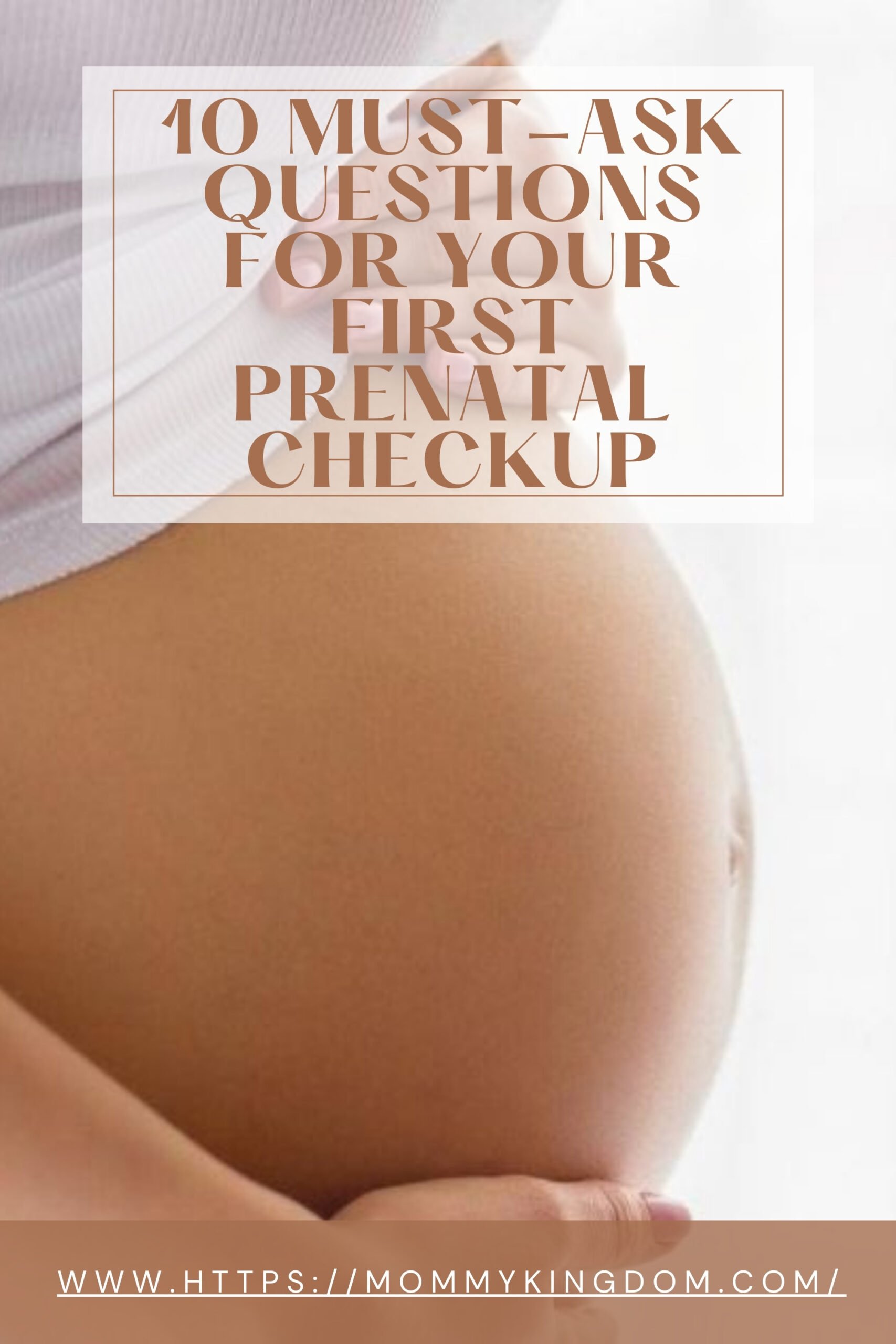Are you expecting a little bundle of joy? Congratulations on this exciting journey into motherhood! As you prepare to embark on this beautiful adventure, it’s essential to take care of both yourself and your baby. One of the crucial steps in ensuring a healthy pregnancy is your first prenatal check-up. This article will guide you through the ten must-ask questions for your first prenatal check-up, providing valuable insights and expert advice to make this experience smooth and reassuring.
The first prenatal check-up is a vital milestone in every expectant mother’s journey. It’s the first opportunity to connect with your healthcare provider and discuss your health, the baby’s development, and any concerns you may have. To make the most of this appointment, we have compiled a comprehensive list of ten essential questions to ask during your first prenatal check-up.
1. What Prenatal Vitamins Should I Take?

During pregnancy, taking prenatal vitamins is crucial to support the healthy growth and development of your baby. Your healthcare provider can recommend the appropriate prenatal vitamin based on your health condition and nutritional needs. These vitamins usually include folic acid, iron, calcium, and other essential nutrients vital for both you and your baby’s well-being.
2. What Foods Should I Avoid During Pregnancy?

Maintaining a healthy diet is vital during pregnancy. Your healthcare provider can advise you on the foods to avoid to prevent potential harm to your baby. Certain foods, such as raw or undercooked meat, unpasteurized dairy products, and certain types of fish high in mercury, should be avoided during pregnancy to reduce the risk of foodborne illnesses and developmental issues.
3. How Much Weight Gain Is Healthy During Pregnancy?

Weight gain is a natural part of pregnancy, but it’s essential to gain weight in a healthy manner. Your healthcare provider can guide you on the appropriate weight gain based on your pre-pregnancy body mass index (BMI) and overall health. Striking the right balance is crucial for your well-being and the baby’s development.
4. What Are the Warning Signs of Complications?

Knowing the warning signs of potential complications during pregnancy is essential. Your healthcare provider can educate you on symptoms to watch out for, such as severe abdominal pain, bleeding, sudden swelling, or decreased fetal movement. Recognizing these signs early can help address any issues promptly.
5. What Prenatal Tests Should I Consider?

Throughout your pregnancy, various prenatal tests can assess your baby’s health and development. These tests may include ultrasounds, blood tests, and genetic screenings. Your healthcare provider can explain the purpose and significance of these tests, helping you make informed decisions about your baby’s care.
6. How Can I Manage Pregnancy Discomforts?

Pregnancy can bring about various discomforts, such as morning sickness, back pain, and fatigue. Your healthcare provider can suggest safe and effective ways to manage these discomforts, ensuring a smoother pregnancy experience.
7. What Exercises Are Safe During Pregnancy?

Staying active during pregnancy offers numerous benefits for both you and your baby. Your healthcare provider can recommend safe exercises tailored to your individual needs and fitness level. Engaging in regular, low-impact exercises can improve circulation, boost mood, and prepare your body for labor.
8. Can I Travel During Pregnancy?

Traveling during pregnancy requires careful consideration. Your healthcare provider can offer guidance on when and how to travel safely. Factors such as the stage of pregnancy, mode of transportation, and destination will be taken into account to ensure a smooth and risk-free trip.
9. What Should I Know About Labor and Delivery?

It’s natural to have questions and concerns about labor and delivery. Your healthcare provider can discuss the process of labor, pain management options, and what to expect during childbirth. This information can alleviate anxiety and empower you for the birthing experience.
10. How Can I Prepare for Parenthood?

As you approach parenthood, you may wonder about the best ways to prepare for this life-changing event. Your healthcare provider can provide resources and advice on parenthood preparation, including parenting classes, baby care basics, and emotional support.
Final Words
Your first prenatal check-up is an essential step in ensuring a healthy pregnancy and a positive start to motherhood. By asking the ten must-ask questions mentioned in this article, you can gain valuable insights and guidance from your healthcare provider. Remember to take care of yourself, stay informed, and enjoy this incredible journey into parenthood. Congratulations again, and best wishes for a safe and joyous pregnancy!
FAQs
Is the first prenatal checkup covered by insurance?
Coverage varies, but many insurance plans include prenatal care benefits. Check with your insurance provider to confirm your coverage.
When should I schedule my first prenatal checkup?
It’s best to schedule your first prenatal checkup as soon as you know you’re pregnant, ideally within the first eight weeks.
Can I bring my partner or a family member to the prenatal checkup?
Absolutely! Having a support person with you during the checkup can be comforting and helpful.
What happens if a prenatal test result indicates a potential problem?
If a test result suggests a concern, your healthcare provider will discuss further diagnostic options and potential next steps.
How often should I have prenatal checkups throughout my pregnancy?
The frequency of prenatal checkups may vary, but typically, you’ll have monthly visits until the third trimester when they become more frequent.
